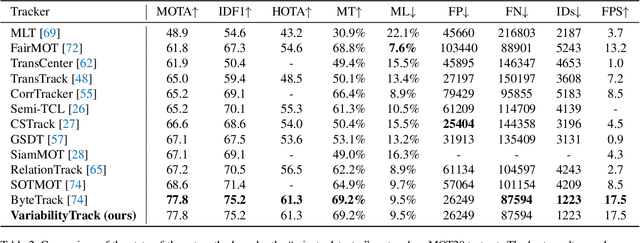Qiao Lin
ReasonPlan: Unified Scene Prediction and Decision Reasoning for Closed-loop Autonomous Driving
May 26, 2025Abstract:Due to the powerful vision-language reasoning and generalization abilities, multimodal large language models (MLLMs) have garnered significant attention in the field of end-to-end (E2E) autonomous driving. However, their application to closed-loop systems remains underexplored, and current MLLM-based methods have not shown clear superiority to mainstream E2E imitation learning approaches. In this work, we propose ReasonPlan, a novel MLLM fine-tuning framework designed for closed-loop driving through holistic reasoning with a self-supervised Next Scene Prediction task and supervised Decision Chain-of-Thought process. This dual mechanism encourages the model to align visual representations with actionable driving context, while promoting interpretable and causally grounded decision making. We curate a planning-oriented decision reasoning dataset, namely PDR, comprising 210k diverse and high-quality samples. Our method outperforms the mainstream E2E imitation learning method by a large margin of 19% L2 and 16.1 driving score on Bench2Drive benchmark. Furthermore, ReasonPlan demonstrates strong zero-shot generalization on unseen DOS benchmark, highlighting its adaptability in handling zero-shot corner cases. Code and dataset will be found in https://github.com/Liuxueyi/ReasonPlan.
UncAD: Towards Safe End-to-end Autonomous Driving via Online Map Uncertainty
Apr 17, 2025Abstract:End-to-end autonomous driving aims to produce planning trajectories from raw sensors directly. Currently, most approaches integrate perception, prediction, and planning modules into a fully differentiable network, promising great scalability. However, these methods typically rely on deterministic modeling of online maps in the perception module for guiding or constraining vehicle planning, which may incorporate erroneous perception information and further compromise planning safety. To address this issue, we delve into the importance of online map uncertainty for enhancing autonomous driving safety and propose a novel paradigm named UncAD. Specifically, UncAD first estimates the uncertainty of the online map in the perception module. It then leverages the uncertainty to guide motion prediction and planning modules to produce multi-modal trajectories. Finally, to achieve safer autonomous driving, UncAD proposes an uncertainty-collision-aware planning selection strategy according to the online map uncertainty to evaluate and select the best trajectory. In this study, we incorporate UncAD into various state-of-the-art (SOTA) end-to-end methods. Experiments on the nuScenes dataset show that integrating UncAD, with only a 1.9% increase in parameters, can reduce collision rates by up to 26% and drivable area conflict rate by up to 42%. Codes, pre-trained models, and demo videos can be accessed at https://github.com/pengxuanyang/UncAD.
Fast-Powerformer: A Memory-Efficient Transformer for Accurate Mid-Term Wind Power Forecasting
Apr 15, 2025



Abstract:Wind power forecasting (WPF), as a significant research topic within renewable energy, plays a crucial role in enhancing the security, stability, and economic operation of power grids. However, due to the high stochasticity of meteorological factors (e.g., wind speed) and significant fluctuations in wind power output, mid-term wind power forecasting faces a dual challenge of maintaining high accuracy and computational efficiency. To address these issues, this paper proposes an efficient and lightweight mid-term wind power forecasting model, termed Fast-Powerformer. The proposed model is built upon the Reformer architecture, incorporating structural enhancements such as a lightweight Long Short-Term Memory (LSTM) embedding module, an input transposition mechanism, and a Frequency Enhanced Channel Attention Mechanism (FECAM). These improvements enable the model to strengthen temporal feature extraction, optimize dependency modeling across variables, significantly reduce computational complexity, and enhance sensitivity to periodic patterns and dominant frequency components. Experimental results conducted on multiple real-world wind farm datasets demonstrate that the proposed Fast-Powerformer achieves superior prediction accuracy and operational efficiency compared to mainstream forecasting approaches. Furthermore, the model exhibits fast inference speed and low memory consumption, highlighting its considerable practical value for real-world deployment scenarios.
VariabilityTrack:Multi-Object Tracking with Variable Speed Object Movement
Mar 12, 2022



Abstract:Multi-object tracking (MOT) aims at estimating bounding boxes and identities of objects in videos. Most methods can be roughly classified as tracking-by-detection and joint-detection-association paradigms. Although the latter has elicited more attention and demonstrates comparable performance relative than the former, we claim that the tracking-by-detection paradigm is still the optimal solution in terms of tracking accuracy,such as ByteTrack,which achieves 80.3 MOTA, 77.3 IDF1 and 63.1 HOTA on the test set of MOT17 with 30 FPS running speed on a single V100 GPU.However, under complex perspectives such as vehicle and UAV acceleration, the performance of such a tracker using uniform Kalman filter will be greatly affected, resulting in tracking loss.In this paper, we propose a variable speed Kalman filter algorithm based on environmental feedback and improve the matching process, which can greatly improve the tracking effect in complex variable speed scenes while maintaining high tracking accuracy in relatively static scenes. Eventually, higher MOTA and IDF1 results can be achieved on MOT17 test set than ByteTrack
 Add to Chrome
Add to Chrome Add to Firefox
Add to Firefox Add to Edge
Add to Edge